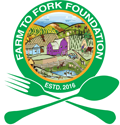Improving quality and prolonging shelf life of guava (Psidium guajava L.) by organic and inorganic compounds and plant extracts
DOI:
https://doi.org/10.5455/faa.20030Keywords:
Guava, plant extracts, organic compound, shelf lifeAbstract
Shelf life of a fruit is an important consideration for its storage and marketing. Post-harvest losses of guava represent a massive loss and decreased our guava production every year. The current study was carried out in the Baramoon Experimental Farm of the Horticulture Research Institute, Dakahlia Governorate, Egypt, to evaluate the effect of pre- and postharvest treatments to extend the marketability and shelf life of guava fruits. A total of 56 trees primarily selected and seven treatments such as T1 = Spray pre-harvest with water and dipping postharvest into water (control), T2 = Spray pre-harvest with CaCl2 at 1% and dipping postharvest into CaCl2 at 1%, T3 = Spray pre-harvest with citric acid at 1% and dipping postharvest into citric acid at 1%, T4 = Spray pre-harvest with rosemary oil 4.0% and dipping postharvest into rosemary oil 4.0%, T5 = Spray pre-harvest with moringa oil 4.0% and dipping postharvest into moringa oil 4%,T6 = Spray pre-harvest with coconut oil 4.0% and dipping postharvest into coconut oil 4% and T7 = Spray pre-harvest with extract of peppermint 4% and dipping postharvest into extract of peppermint 4%. From each group, random samples of 20 light yellow color stage fruits were taken and immersed in the same solution, separately each for 2 min, and stored at ambient conditions for 9 d. Quality attributes of fruits were analyzed before and after 9-day storage. The obtained results indicated that there were significant differences among the treatments. Medicinal and ornamental plant extracts or oils solutions resulted in extending the shelf life of guava for 9 d by minimized the loss in physical and chemical quality attributes. Among the treatments pre-harvest spraying with moringa oil 4% and postharvest dipping into the same solution performed best in terms of loss of fruit weight 14.0%, fruit firmness 1.30 kg cm−2, increases of TSS content 0.10 ◦Brix, decrease ascorbic acid content 1.67 mg 100g−1 and increases of acidity 1.0%.
Downloads
Downloads
Published
How to Cite
Issue
Section
License
Copyright (c) 2020 by the author(s). This work is licensed under a Creative Commons.

This work is licensed under a Creative Commons Attribution-NonCommercial 4.0 International License.





















